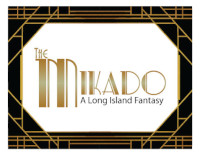
THE MIKADO: A LONG ISLAND FANTASY
by Gilbert & Sullivan
Produced by The G&S Light Opera Co. of Long Island, 21 May 2022.
Directed by Tony Tambasco
I was hesitant to accept when I was approached by GaSLOCoLI about directing The Mikado, but I'm glad that I said yes. The Mikado has done a lot of harm to Asian communities in the past century+, but in getting to know this play and its performance history, I learned that those results are the opposite of Gilbert and Sullivan's intentions. Gilbert, most specifically through his staging, was practicing something closer to what we might term "cultural appreciation," and it was only after his death that subsequent stagings began to integrate the racist "yellowface" tropes of London's music halls that Gilbert worked so diligently to avoid and subvert.
The Mikado's modern defenders will often note that the opera is not meant as an insult to Japanese people, and has more to do with Gilbert's contemporary London than Japan of any time period. If that's true, presenting Gilbert and Sullivan's satire as a fairytale of anywhere else should work as effectively as presenting it as a fairytale of Japan; Long Island loves its Gatsby parties, and since it was about to be the 20's again when we initially planned this production, making this production a fantasy of Long Island in the 1920s seemed like a way to make a local connectino for the opera and let its beauty shine.
And The Mikado is beutiful. It's characters are smart and well written, and I have found that the questions it asks of us, perhaps most chiefly how one can manage to live sincerely in the face of the absurdities of government tyranny, are still urgent. Even something The Mikado's more simple questions, like who gets to be in love and have a happy ending, ring true in a world where romance is at least as depersonalized as Gilbert and Sullivan's.
The COVID-19 pandemic delayed our production, but it didn't stop it, and I'm glad we were able to share a vision of The Mikado that embraced the best of the opera, and of our community.
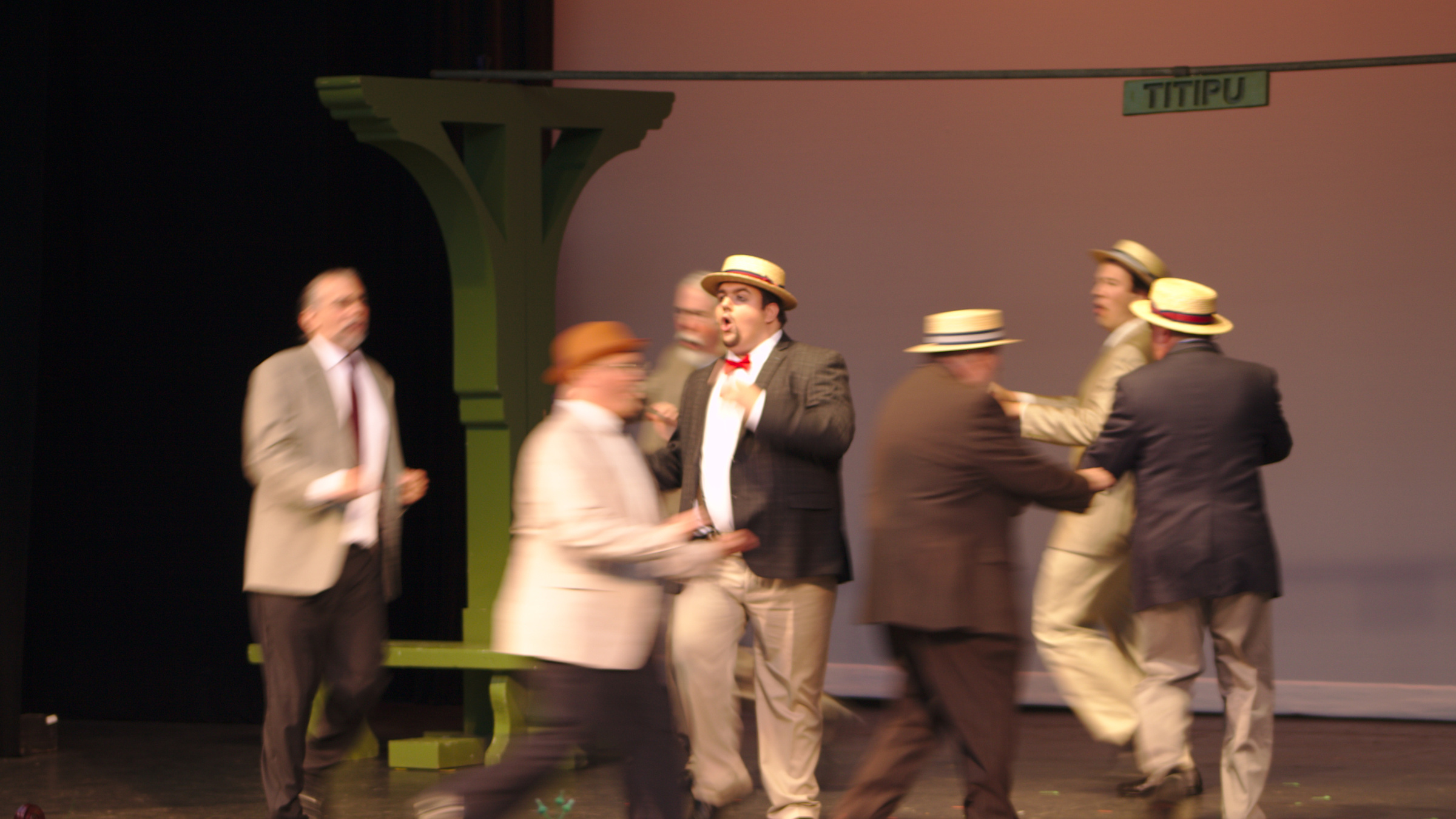 Nanki-Poo (Richard Risi) enchants the male chorus in The Mikado: A Long Island Fantasy. Directed by Tony Tambasco. Scenery by Karen Root. Costumes by Janine Loesch.
Nanki-Poo (Richard Risi) enchants the male chorus in The Mikado: A Long Island Fantasy. Directed by Tony Tambasco. Scenery by Karen Root. Costumes by Janine Loesch.
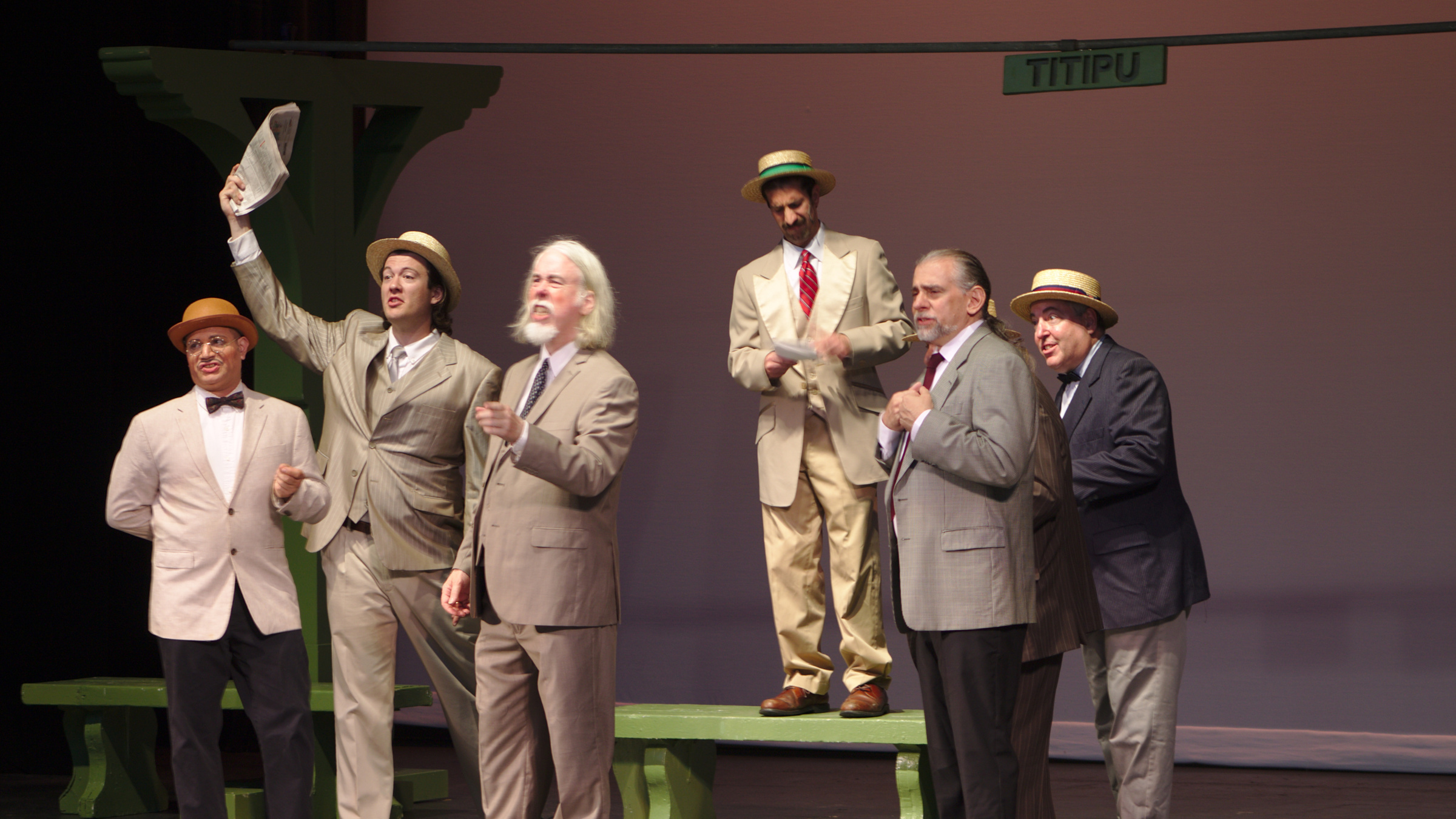 "He's got 'em on the list; And they'll none of 'em be missed" - the men's chorus sings their approval of KoKo's "little list" in The Mikado: A Long Island Fantasy. Directed by Tony Tambasco. Scenery by Karen Root. Costumes by Janine Loesch.
"He's got 'em on the list; And they'll none of 'em be missed" - the men's chorus sings their approval of KoKo's "little list" in The Mikado: A Long Island Fantasy. Directed by Tony Tambasco. Scenery by Karen Root. Costumes by Janine Loesch.
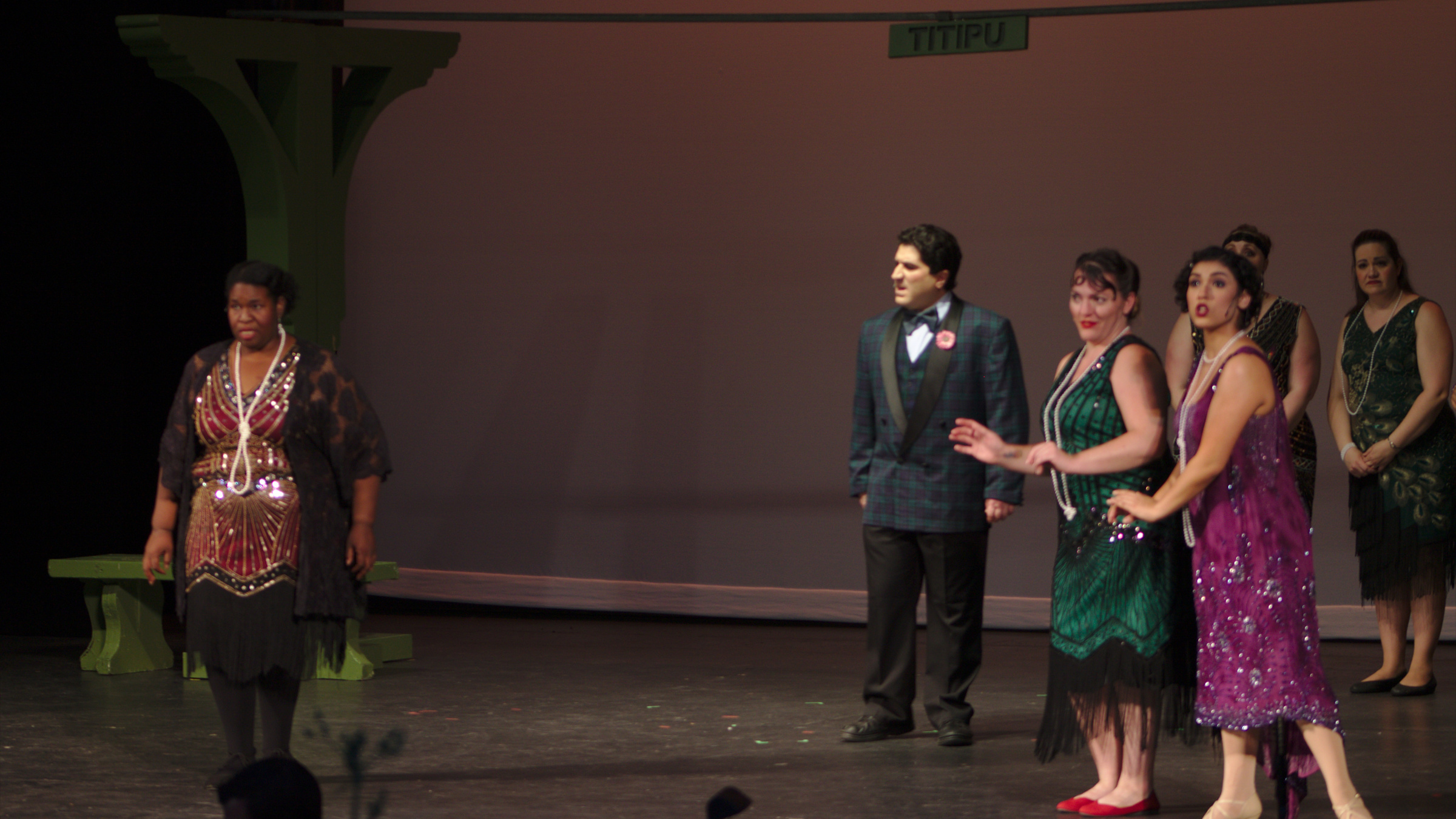 "And don't, in girlhood's happy spring, Be hard on us, Be Hard on us" from The Mikado: A Long Island Fantasy. Directed by Tony Tambasco. Scenery by Karen Root. Costumes by Janine Loesch.
"And don't, in girlhood's happy spring, Be hard on us, Be Hard on us" from The Mikado: A Long Island Fantasy. Directed by Tony Tambasco. Scenery by Karen Root. Costumes by Janine Loesch.
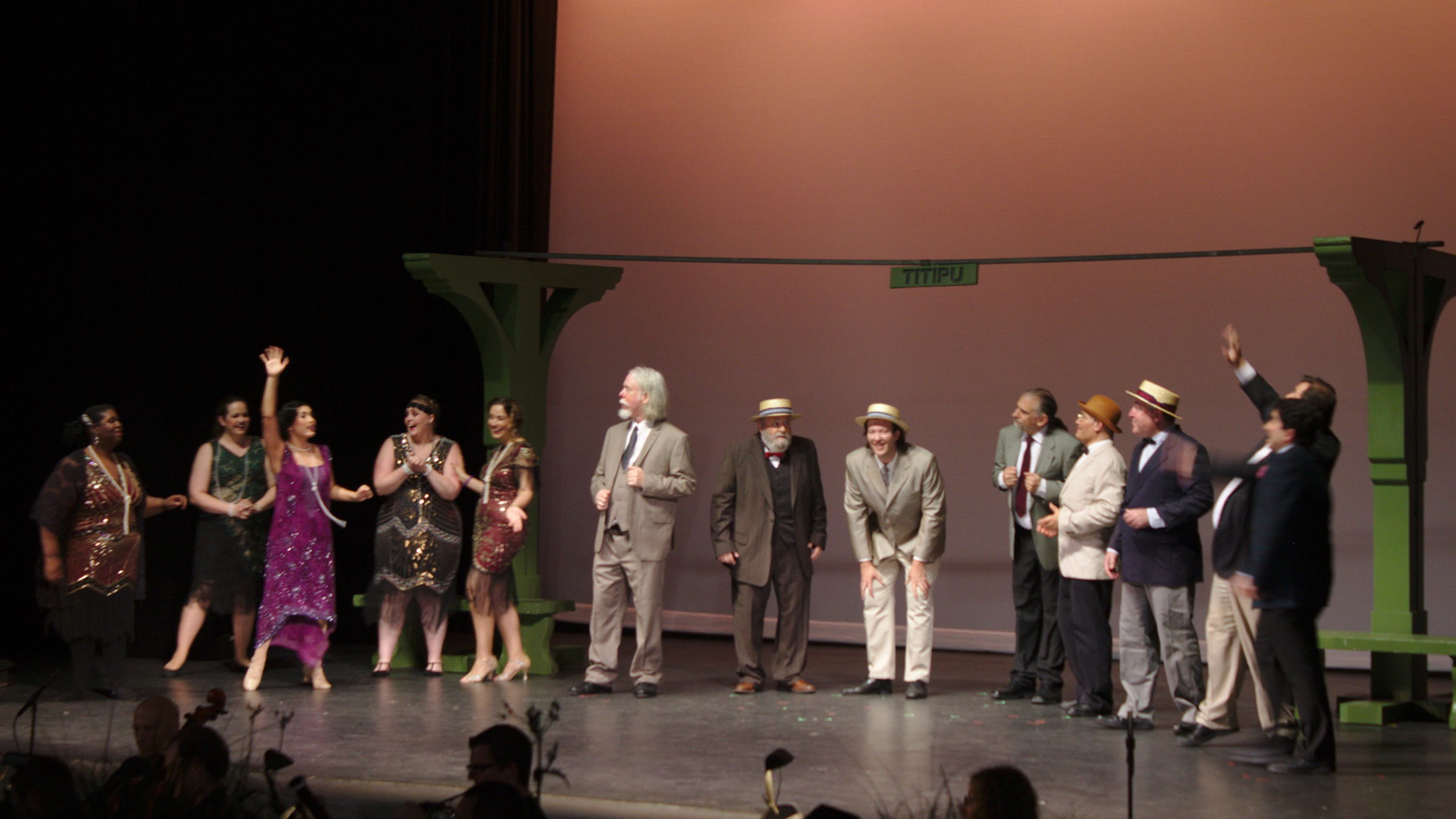 "Or far or near, or far or near" Yum Yum (Sabrina Lopez) and Nanki Poo (Richard Risi) can't manage to get together in the Act 1 finale of The Mikado: A Long Island Fantasy. Directed by Tony Tambasco. Scenery by Karen Root. Costumes by Janine Loesch.
"Or far or near, or far or near" Yum Yum (Sabrina Lopez) and Nanki Poo (Richard Risi) can't manage to get together in the Act 1 finale of The Mikado: A Long Island Fantasy. Directed by Tony Tambasco. Scenery by Karen Root. Costumes by Janine Loesch.
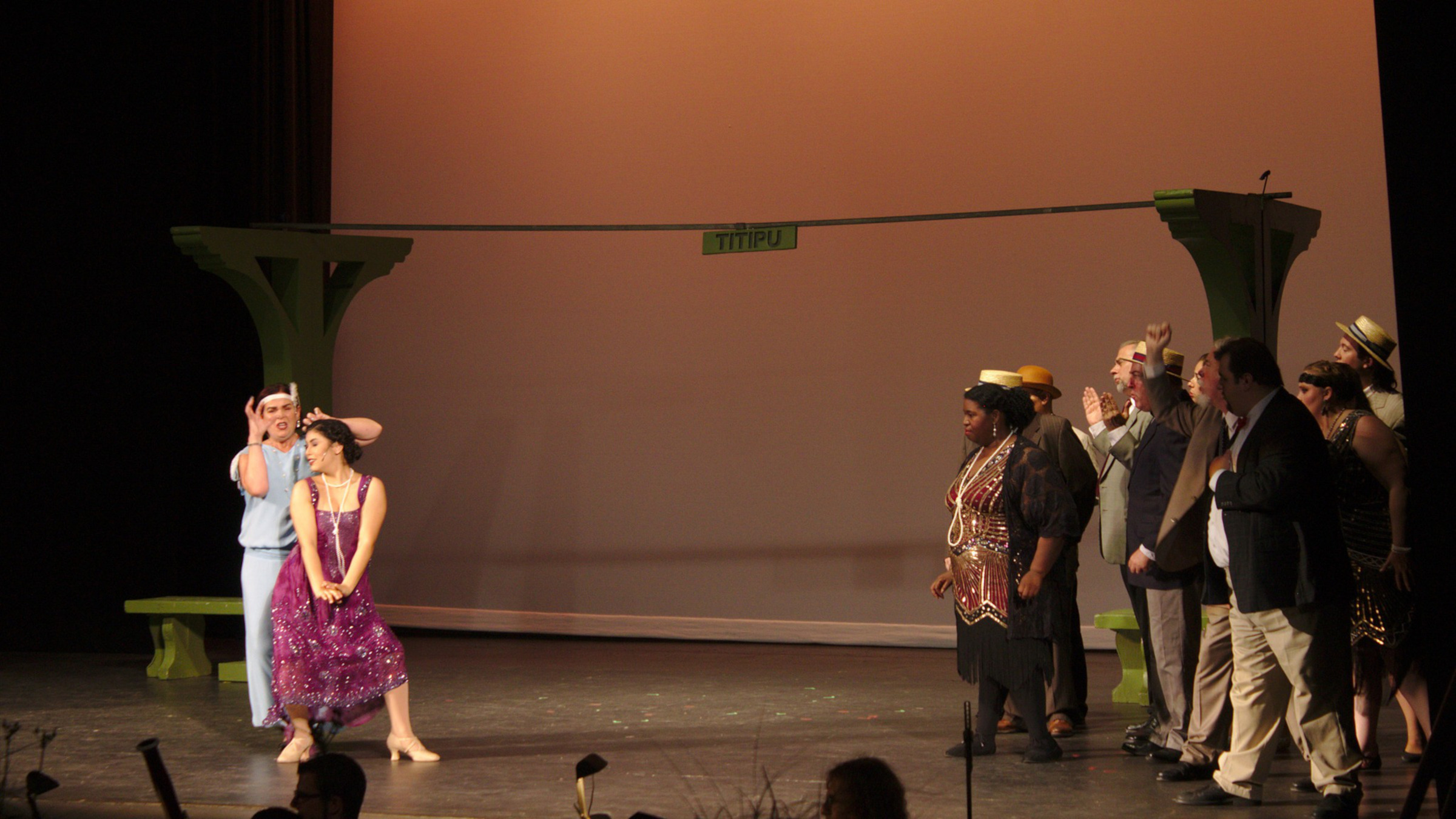 Yum Yum (Sabrina Lopez) silences Katisha (Patricia Gallagher) with a jazz dance in The Mikado: A Long Island Fantasy. Directed by Tony Tambasco. Scenery by Karen Root. Costumes by Janine Loesch.
Yum Yum (Sabrina Lopez) silences Katisha (Patricia Gallagher) with a jazz dance in The Mikado: A Long Island Fantasy. Directed by Tony Tambasco. Scenery by Karen Root. Costumes by Janine Loesch.
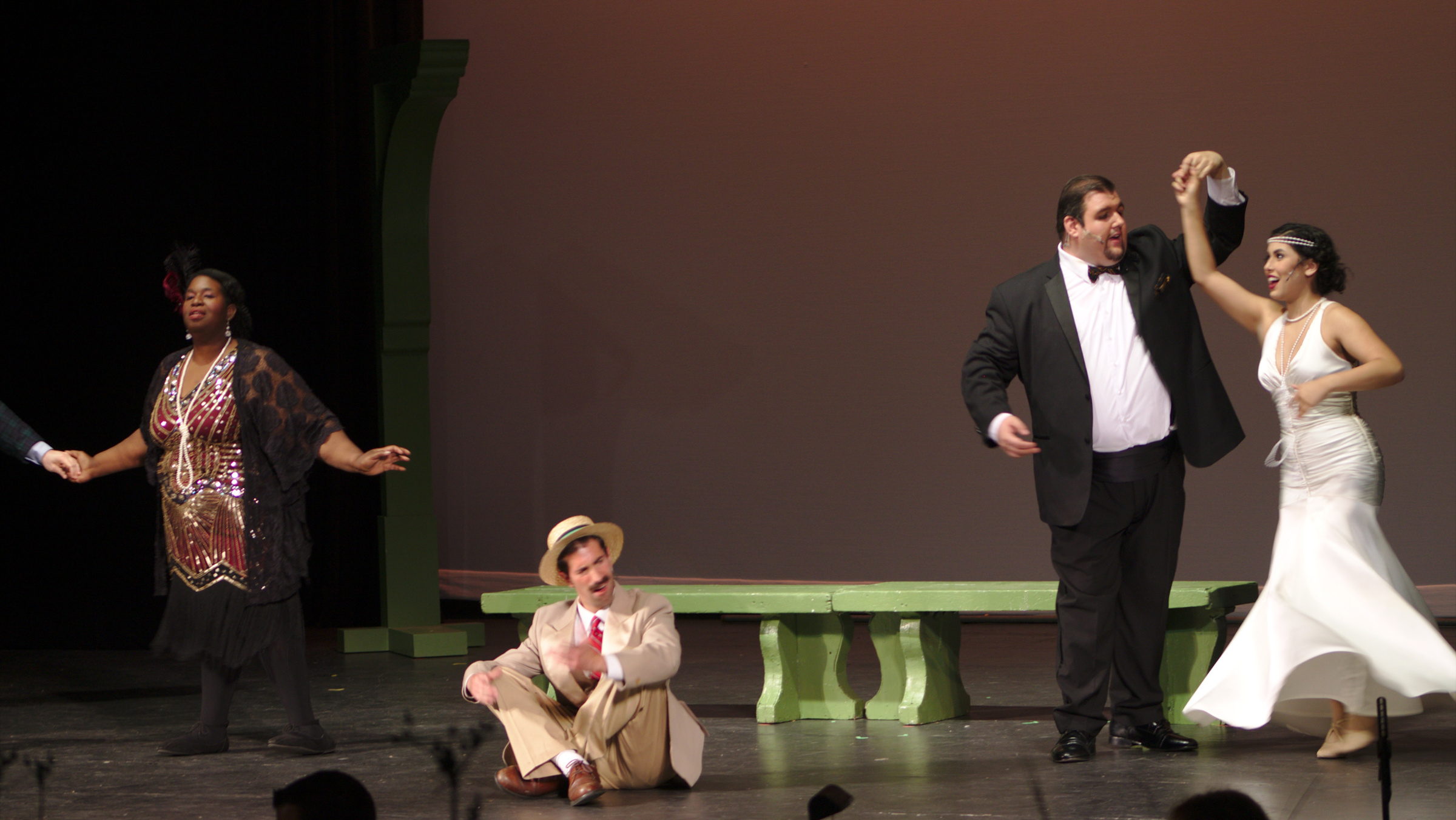 Ko-Ko (Michael Rugierre) doesn't much care for "The Flowers that Bloom in the Spring" in The Mikado: A Long Island Fantasy. Directed by Tony Tambasco. Scenery by Karen Root. Costumes by Janine Loesch.
Ko-Ko (Michael Rugierre) doesn't much care for "The Flowers that Bloom in the Spring" in The Mikado: A Long Island Fantasy. Directed by Tony Tambasco. Scenery by Karen Root. Costumes by Janine Loesch.
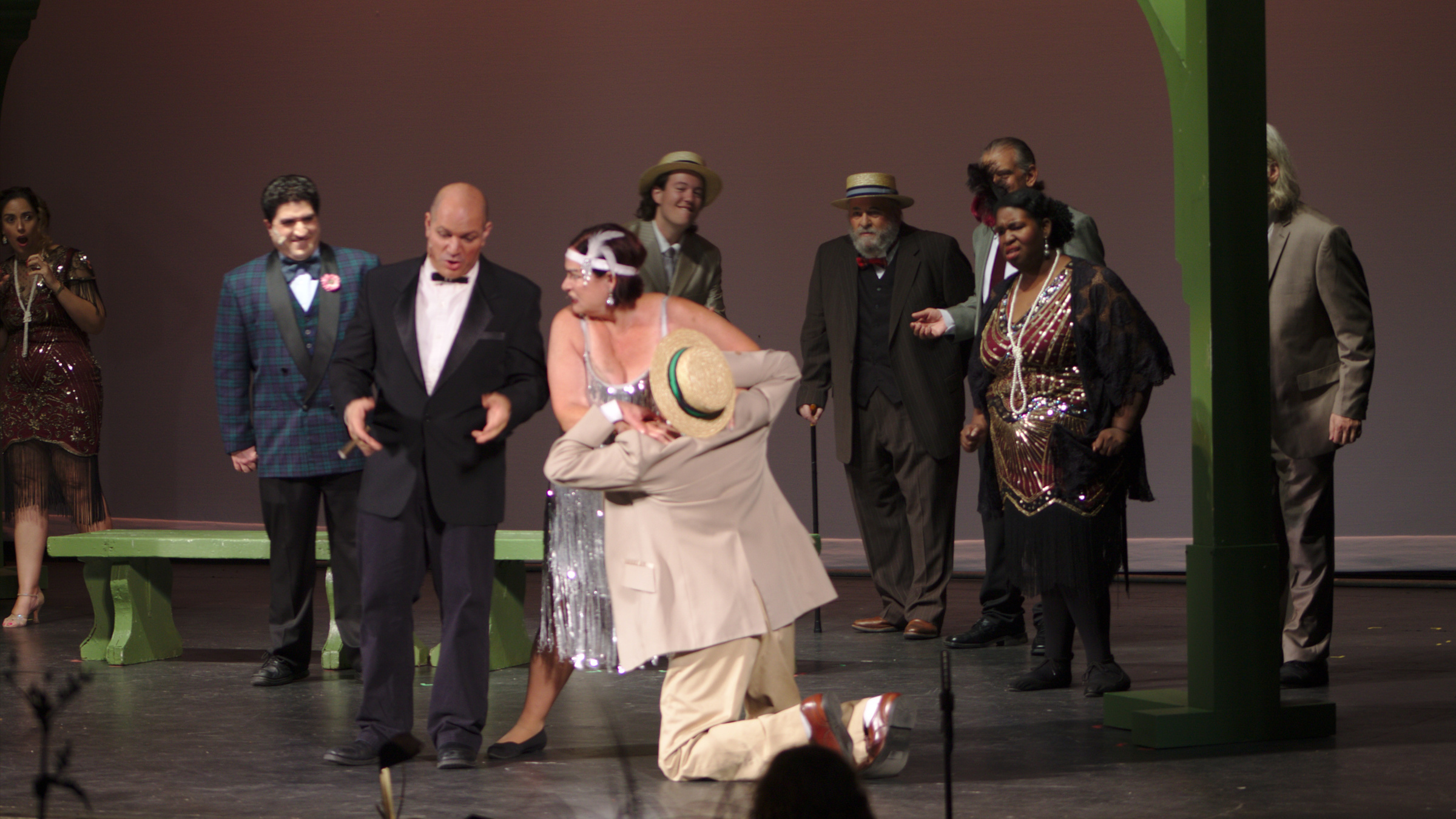 The Mikado (Chris Jurak) persuades Katisha (Patrica Gallagher) that Ko-Ko (Michael Ruggiere) will provide an explanation better whole than in pieces in The Mikado: A Long Island Fantasy. Directed by Tony Tambasco. Scenery by Karen Root. Costumes by Janine Loesch.
The Mikado (Chris Jurak) persuades Katisha (Patrica Gallagher) that Ko-Ko (Michael Ruggiere) will provide an explanation better whole than in pieces in The Mikado: A Long Island Fantasy. Directed by Tony Tambasco. Scenery by Karen Root. Costumes by Janine Loesch.